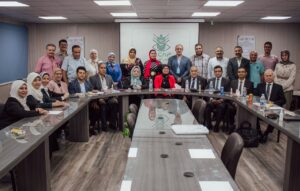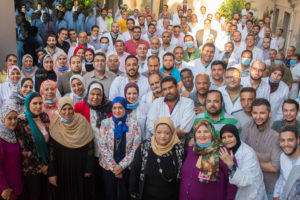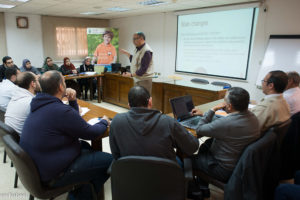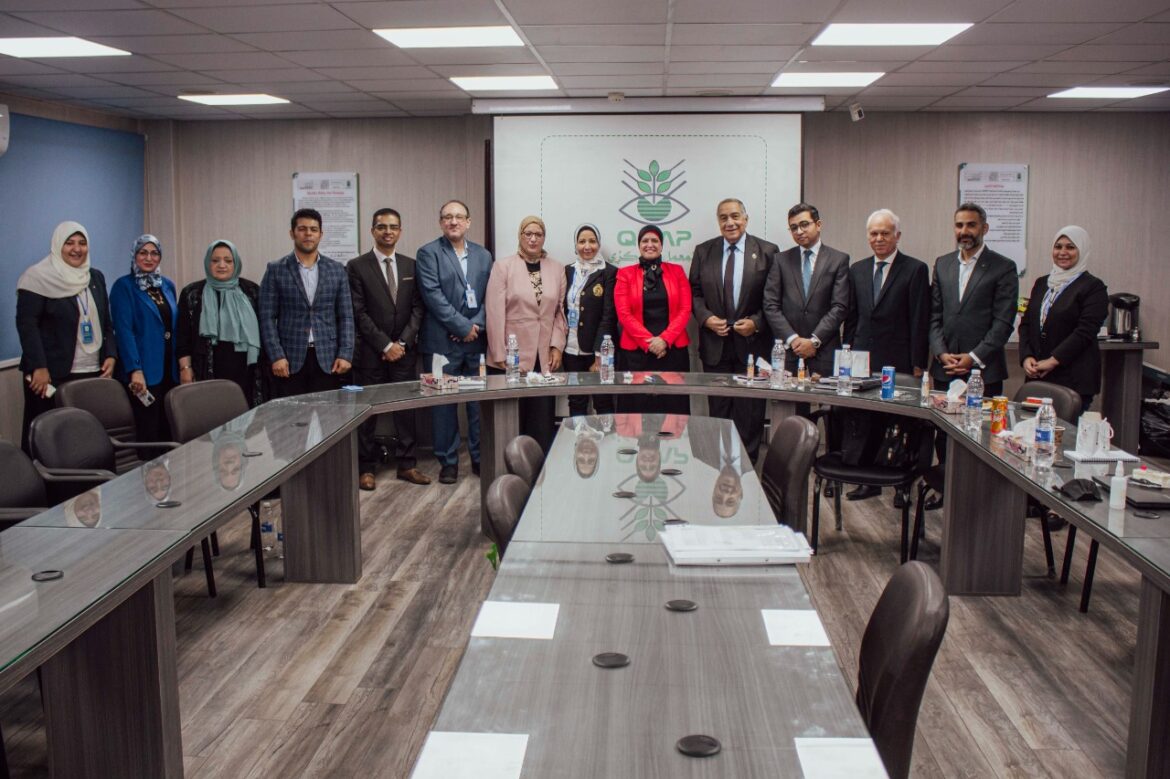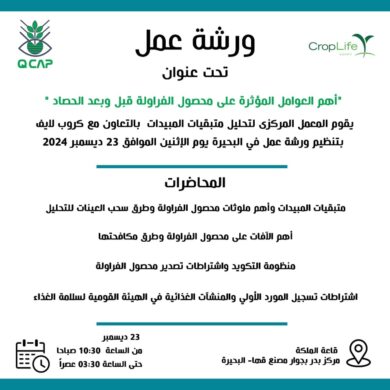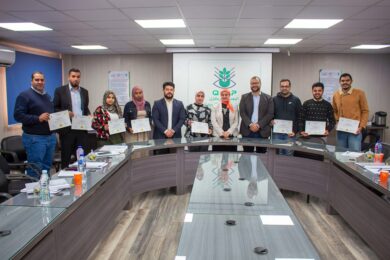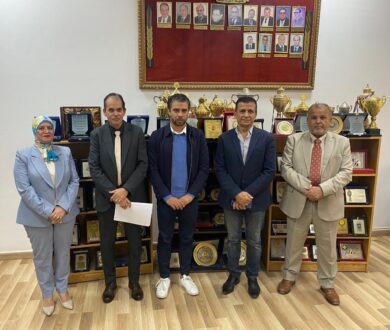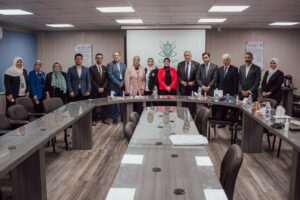
Within the framework of the directives of His Excellency the Minister of Agriculture and Land Reclamation, Mr. Al-Qaseer, to continue and improve the quality of services provided to workers in the agricultural and food industries, to support Egyptian exports, as well as to protect the Egyptian consumer, and since the Central Laboratory for the Analysis of Pesticides Residues and Heavy Elements in Food (Q-CAP) is one of these authorities announced a Dr./ Mohamed Soliman, Head of the Agricultural Research Center, the laboratory’s Cu-Cap Training Center granted ISO 9001:2015 for Quality Management System and ISO 21001:2018 for Quality Management of Educational Institutions from the National Accreditation Council (EGAC) as the first central laboratory affiliated with the Agricultural Research Center to have a center ISO-certified training in the field of quality management of educational facilities. AJA Egypt, the agent of the English company AJA in Egypt, recommended granting the training center two certificates: ISO 9001:2015 for the quality management system and ISO 21001:2018 for quality management of educational facilities from the National Accreditation Council (EGAC) In accordance with the recommendation of the international audit committees that completed their visit to review the quality systems applied in the center, stressing the excellence of the laboratory in the application of international standards of quality in all areas Samah and its services, which reflects its strategy to proceed according to the center’s future plan and vision.
In this context, Prof. Hind Abdullah/ Director of the Central Laboratory for Residue Analysis of Pesticides and Head of the Training Center announced that this achievement comes within the framework of the laboratory’s plan to develop the quality of all its different sections for clients, and indicated the importance of having an accredited training center aimed at raising the efficiency of researchers and working specialists. In the field of food safety and pollutant analysis at the local and international levels, as well as students and graduates, the center also provides support and cooperation with non-governmental organizations for training on sustainable agricultural development projects as an active part of the agricultural community. It also aims to provide the necessary consultations in the field of food safety and quality of laboratories to obtain a food product security. In the same context, Abd Allah confirmed that these grants are added to the laboratory’s achievements in terms of obtaining international accreditation in ISO 17025:2017 from Finland, the International Vinas Authority, since 1996 until now, and from the National Accreditation Council (EGAC), and that the laboratory has accreditation in the ISO specification. /IEC 17043:2010 for providers of proficiency tests in the field of some analyzes of microbiological chemical contaminants in food, water and surface swabs from the National Accreditation Council (IGAC) in that the laboratory is the only agency in the Agricultural Research Center that has obtained four ISO certificates in the fields of laboratories quality management, aptitude tests and quality Management of educational facilities and quality of training.
It is worth noting that the laboratory has been providing international and local training programs in the fields of food safety and pollutant analysis for more than 20 years, during which it contributed to raising the efficiency and adding experiences to specialists from Arab and African countries and specialists in Egypt using the latest training methods and the best experts working in this field.
The laboratory is one of the most important laboratories in the Middle East, given that it is the first laboratory accredited in ISO 17025 in Egypt and the Middle East since 1996. It is also the only laboratory accredited from Europe. The laboratory includes more than six departments for the analysis of contaminants in food and the environment, as it is the reference laboratory for the African Union. To analyze pesticide residues in food.
All of this comes within the framework of improving and developing laboratory services to increase Egyptian exports and open new international markets by developing all sections of the laboratory and providing them with the latest equipment used in the field of pollutant analysis in the world and increasing the efficiency of researchers and analysts by continuous training on the latest methods of analysis by bringing in international experts for training and also increasing capacity The capacity of the lab and all of this was reflected in the increase in the number of samples received to the lab, where more than 200 thousand diverse analytical samples were analyzed since the beginning of 2022 until now in the various departments of the lab.
